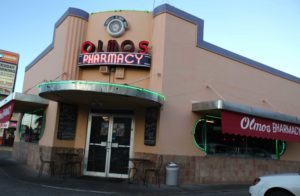By: David Hoffman

The objective of my stand-up comedy routine was to bring Donald Trump’s use of propaganda in the 2016 election to light. My interest in this topic began over the summer when I interned for a digital marketing firm named Giles Parscale. One of the partners of the company, Brad Parscale, was the digital marketing director for the campaign, and I had a chance to view his team’s headquarters in person. After Trump won the nomination, I turned to our study of propaganda for answers. The connection I ended up unmasking was W. Kamau Bell’s identification of a lack of Caucasian pride with the propaganda techniques used by the Trump campaign to incite blind patriotism. Just as W. Kamau Bell urged the Caucasian members of the audience to take pride in their heritage, the Trump campaign made the same argument to all Americans. The example I gave that encapsulated this point was his campaign slogan: Make America Great Again. This is a clear use of a glittering generality[1], and I made this point by explaining that the universality of the campaign slogan is what made the obscure message so applicable to those who voted for him.
The secondary objective of my project was to encourage political discussion in public rather than over a computer. I was bombarded with political discussions on social media the day after the election, and I at first saw it as productive. Once I took a step back and saw the echo-chamber that is social media, I realized the discussion didn’t have any real impact. By giving my routine at the Olmos Pharmacy Diner, my opinion was no longer bound to a majority that agreed with me. Once I finished my routine, there was applause as well as one older gentleman who loudly booed. He came up to me after and told me that he disagreed with what I had to say, and I really appreciated him doing so.
The biggest challenge I encountered with this project was being able to balance the academic nature of this project with the comedy that is inherent with stand-up. These concepts that we have been studying for a semester are difficult to identify and explain via lecture, and packaging them to a general audience in a comedic vehicle took a lot of thought. The inspiration for my comedic delivery was mainly taken from my favorite stand-up comedian, Tom Segura. Tom Segura is the master of pointing out the absurdity of seemingly normal situations in a very understated tone. This is best shown when he discusses his relationship with the television show The First 48 [2]. I had seen this show on daytime television from time to time and had never given it much thought, but the way he explains how the show downplays real murder made me realize that I do the same just by watching the show. It was my goal to use his method as a way to simplify something as complex as a presidential election.
For all of the planning and thought that went into this project, it was very nerve wracking to have it all culminate in one moment. I am not sure if my message resonated with the audience I presented to, but it definitely had an impact on me.
[1] Delwiche, A. (2011, February 2). Glittering Generalities. Propaganda Critic.
[2] Comedy Dynamics. (2015, September 25). Tom Segura – The First 48. [Video File].